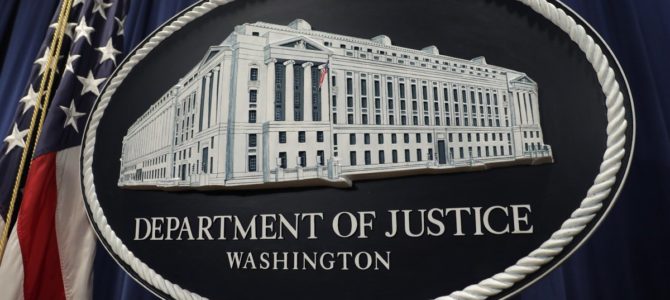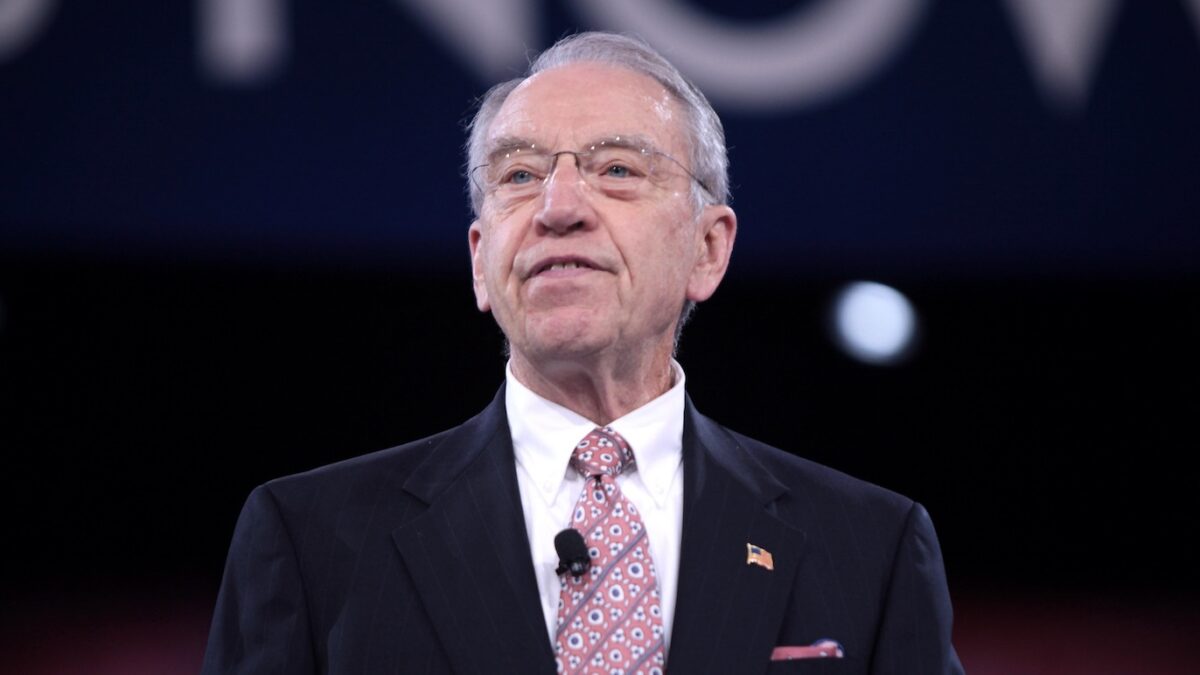
The Department of Justice’s Inspector General announced on March 28, 2018, that he was going to look into the application to wiretap Carter Page, who had been an advisor to the Trump campaign. The review would analyze whether policies and procedures related to the Foreign Intelligence Surveillance Act had been properly followed.
Earlier that year, the House Permanent Select Committee on Intelligence, then led by Republican Chairman Devin Nunes, had released a report about FISA abuse. The Justice Department fought the disclosure of the report bitterly, claiming it would egregiously harm national security.
The report was released, showing among other things that the Clinton campaign’s Russia collusion “dossier” formed an essential part of the application to spy on Page, that the role of the Clinton campaign and the Democratic National Committee was not properly disclosed to the court that approved the application, and that dossier author Christopher Steele’s relationship and posture was not appropriately disclosed. The report noted that the application cited a Yahoo News article written by Michael Isikoff without noting that the source of that article was Steele. It revealed that Bruce Ohr, a DOJ official, continued to talk to Steele after Steele was terminated as a source to the FBI, and that Bruce’s wife Nellie was a colleague of Steele’s on the Russia collusion project. Her role was not disclosed to the court. Bruce Ohr disclosed Steele’s extreme political bias to the FBI but that bias was not mentioned to the court. The report also showed that the dossier was not validated before being used for the application or before a portion of it was briefed to President-elect Trump in January 2017. The report also noted the extreme political bias against Trump and in favor of Clinton on the part of Lisa Page and Peter Strzok, two officials involved in the process. Text messages between the two included discussions of coordinated leaks to the media and an attempt to have an “insurance policy” in the unlikely case Trump won.
The Democratic minority, led by current chairman Adam Schiff, said that there was no FISA abuse.
The review dragged on from weeks to months to more than one year and eight months. It is reportedly being released on Monday and will be several hundred pages long. If reporters’ handling of previous Inspector General reports is prologue, few will read it substantively before opining on its meaning.
Instead, many have allowed themselves to be used by their sources to spin the reports’ meaning in advance. Samples of that effort include this whitewash of Lisa Page’s various unseemly actions, cartoonishly biased pieces about Attorney General Barr not agreeing with Horowitz’s alleged exoneration of the Department of Justice, and pieces implausibly suggesting that surveillance of Trump campaign affilites did not constitute “spying,” in any meaningful sense, among many others.
What should people expect from the report?
1) First off, lower expectation of justice for wrongdoing
The widespread surveillance of the Trump campaign, according to published reports, included the use of human informants, overseas intelligence assets, wiretaps and national security letters. Many critics of that surveillance hope that this Inspector General report will bring some justice. They should get rid of that hope as soon as possible.
Inspector Generals are like the human resource arm of a corporation. Human resource divisions do not exist to help employees but to help corporations. They take care of problems and protect the corporation. Similarly, Inspector Generals exist to help their agency deal with problems and messes. Sure, they may be forced to admit wrongdoing on the part of the agency and its employees, but they will always downplay it. If there’s a conceivable way to say that the department didn’t violate the policy or law, they will do that. And they will characterize the bad behavior that they must concede as limited to rogue employees and not representative of the larger agency.
Now having said that, Michael Horowitz has actually been willing to admit some of the wrongdoing by James Comey and Andrew McCabe, both of whom he referred for criminal prosecution. He has harshly criticized Peter Strzok and Lisa Page, and many other people whose politicized decision-making reflected poorly on the department. Of Lisa Page and Strzok, he said that they “brought discredit to themselves.”
But if Horowitz were an actual prosecutor, he would have rung up dozens of employees on crimes. Instead, we’re hearing rumors of just a couple of employees are being held slightly accountable for what they did in 2016. That’s not an impressive number given what we already know about what they were doing.
2) Don’t rewrite history
Some defenders of the surveillance of the Trump campaign have been claiming that critics of the surveillance have placed all of their hope in the Inspector General report. That’s simply not true, even for those who seek some level of justice through the Inspector General’s investigation. As evidence, here’s a February 2018 tweet from President Trump upon hearing the news that then-Attorney General Jeff Sessions was going to ask Horowitz to look into the abuse:
Why is A.G. Jeff Sessions asking the Inspector General to investigate potentially massive FISA abuse. Will take forever, has no prosecutorial power and already late with reports on Comey etc. Isn’t the I.G. an Obama guy? Why not use Justice Department lawyers? DISGRACEFUL!
— Donald J. Trump (@realDonaldTrump) February 28, 2018
Perhaps the report will show that Trump’s skepticism was unwarranted but there is no question that the informed critics of the DOJ’s actions were unimpressed with what an IG report would do or show.
3) Remember that constraints on Horowitz’s probe are significant
People expecting a thorough look at the widespread surveillance on the Trump campaign likely will be disappointed for several reasons.
First off, the IG said he was looking only into the surveillance of “a certain U.S. person,” presumably Carter Page. But Page is just one of the campaign affiliates who was surveilled. Horowitz said that “if circumstances warrant,” he’ll “consider including other issues that may arise,” but it’s unclear how many were looped into his sluggish probe.
Horowitz is also constrained by the fact that he is only allowed to speak with people who work at the Department of Justice at the time of his questioning. If they’ve retired or been fired, he can’t force them to cooperate with his probe. If they work at a different agency or department, he can’t compel cooperation. And that’s significant since many other agencies were involved in the Russia collusion theory that was disseminated throughout the government. The dossier — secretly funded by Hillary Clinton and the Democratic National Committee, for instance — was fed through multiple agencies, not just the FBI and Department of Justice.
These limits don’t make his probe meaningless, but just much less effective than a real investigation. This could explain why the Attorney General assigned an actual federal prosecutor to look into the matter, even if he started his probe years’ too late, giving the implicated opportunities to hide evidence and let trails run cold.
The Department of Justice has revealed that the probe led by federal prosecutor John Durham has become a criminal investigation due to the wrongdoing it has found.
4) Don’t believe spin
Having said all this, it’s also important not to believe the spin being fed to reporters by the implicated parties. Reporters colluded with Justice Department leakers to perpetuate the Russia hoax, so they’re the furthest thing from impartial at the outset. The implosion of that conspiracy theory was humiliating to reporters, none of whom have admitted how they got the overarching journalistic narrative of 2017, 2018, and 2019 so wrong. They promised readers bombshell support of the frankly ridiculous theory that Trump was a traitor who had colluded with Russia to steal the 2016 election. Instead, a limitless probe of Trump and his campaign found no evidence of such collusion.
5) However downplayed, facts will likely show significant wrongdoing
The best thing the Inspector General report will have is factual information. Few people actually read his previous, sprawling reports on abuses at the Department of Justice and FBI but those who did learned a great deal about the sorry state of affairs at those agencies. Sure, he may have said he couldn’t definitively show that Lisa Page’s bias against Trump affected her actions against him, but he still clearly showed her extreme bias and the actions she took against him. Reasonable people who are not paid to support the Department of Justice, then, can make their own determination about whether she’s as sanctified as the liberal media claim.
The Republican memo outlined particular facts. The Democrats’ memo disputed those facts. Regardless of whether Horowitz joins Trump’s critics in defending all the actions of the agency he serves, the facts will enable people to make their own decisions.









